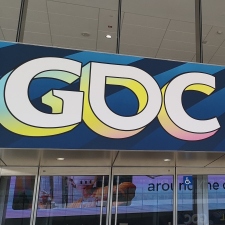And just like that, another GDC has come and gone. Months of planning, and within a week, it’s all over.
Some years, GDC doesn’t quite have that big takeaway or trend. In other years, it’s plainly obvious. In 2024? There were a mixture of trends bubbling under the surface, but too undercooked to take over the show.
This year’s conference showed an industry coming to terms with a tough couple of years, while looking ahead at the changes to come.
Below I’ve listed some of my key takeaways from inside and outside of the show.
1) Except for Epic, the big news was outside of GDC
Over the past 12+ years I’ve been covering games, GDC has always been a huge week for industry news coinciding with the show. PRs would regularly week out with their big news weeks ahead of announcements, while major reveals would take place at the show itself.
This year felt quieter on that front. Epic’s State of Unreal - which notably took place at a separate venue across the road in the YBCA Theatre - was this year’s big event. The big announcement: the Epic Games Store is coming to Android and iOS by the end of 2024, with Epic keen to usher in a new era for mobile games outside of the App Store and Google Play.
CEO Tim Sweeney would usually be in town for such a big show, but he was aptly busy fighting yet another antitrust battle against mobile’s platform holders, this time in Australia.
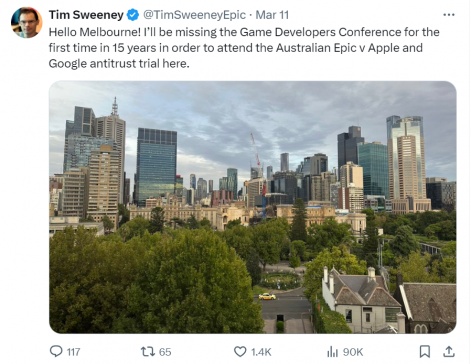
Epic also showed off tech demos for upcoming Unreal Engine-powered games like Skydance Media’s 1943: Rise of Hydra, Funcom’s Dune: Awakening and Zynga's Star Wars: Hunters, as well as a string of new features and tools for Unreal Engine for Fortnite - including the news it will build a season of Fortnite entirely within UEFN. But there was no big news on potential Unreal Engine licensing changes. Perhaps that’s for another day (if ever!).
Outside of San Francisco (well actually, still in the city). there was the news that Sensor Tower had acquired its competitor Data.ai. For anyone in mobile, that was the talk of the town. The two biggest companies in the market intelligence space have now merged, in a continuation of consolidation in the industry at large and in the data space.
It has sparked a few key questions: how did Sensor Tower acquire its larger rival? What does this mean for developers? We’ve got an exclusive interview with Sensor Tower coming soon where they respond to some of those questions.
Then of course, there was the US Department of Justice’s explosive antitrust case against Apple, which can’t catch a break.
As we wrote last week, the lawsuit alleges “Apple drives up its prices, imposes contractual restrictions on developers, withholds critical access from them, and makes it difficult for an Apple user to move away from its hardware due to compatibility issues”.
We’ll see how that develops over the next few years, and if the case even carries on post the presidential election at the end of 2024.
2) Godot and Unreal take advantage of a Unity still reeling
Ever since the Unity runtime fee fiasco (so controversial that the engine maker is continuing with it and even inspired Apple’s own core technology fee, too), Unity hasn’t been its old self. It’s certainly been quieter about what it’s up to, while also dealing with its bloated business and laying off hundreds of staff.
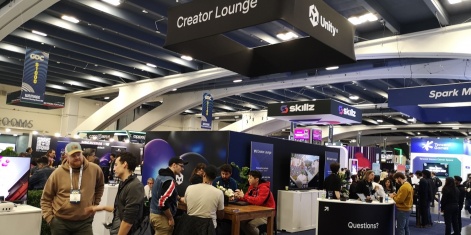
Amid this background, Unity’s booth on the GDC expo floor seemed a particularly low key affair compared to past years. Meanwhile, you could hardly miss Unreal’s huge stand, logos and games built with Unreal and UEFN.
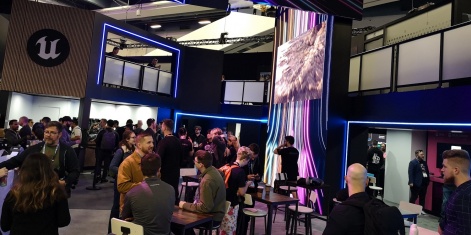
Most interesting, and a sign of the times, was what could be the next big game engine in town: Godot. It arguably had a more notable show floor presence than Unity this year, showcasing the company’s confidence and intent that it is here to compete with the enormous incumbents it’s looking to challenge.
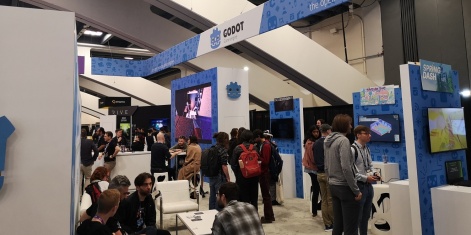
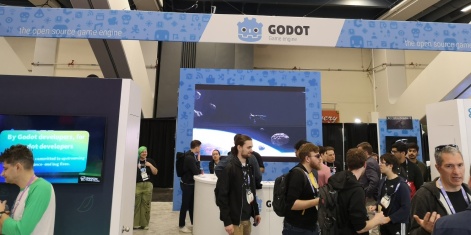
Unity, of course, won’t take this lying down. If it’s able to recover from the current mire it dug for itself, I suspect they’ll be back with a bang next year. They’d surely need to.
3) Web3 and AI simmering but waiting for big breakout
Despite a challenging - to say the least - couple of years for web3, it continued to have a large presence at the show. Blockchain games platform Avalanche and Ethereum-based tech firm Arbitrum had large booths on the expo floor - the former more like something you’d see from a consumer conference with its game stations, while WeMade continued its strong presence around the show.
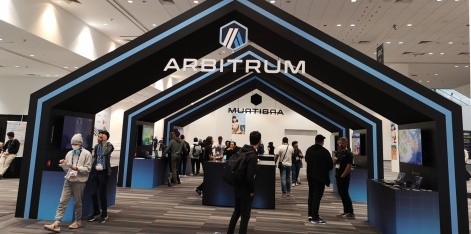
AI, meanwhile, was notable around the show. Start-up InWorld - which has raised $100 million for AI-powered NPCs - had a booth at this year’s show, while there were also a number of AI sessions throughout the week from the likes of King, Roblox, Unity, Tencent and others.
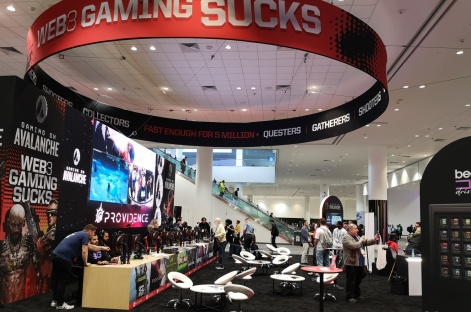
At Pocket Gamer Connects San Francisco, we had the likes of Ludo.ai, Infinite Canvas, Charisma.ai and Titan AI, amongst others, also discuss the trend in-depth and what AI's practical uses in production are right now.
Both AI and web3 still feel generally undercooked. There’s a feeling that the companies in the web3 space are now more serious players, as opposed to the opportunists and teams with no experience in games that were seen at previous start-ups, driving negative opinion alongside a plethora of crypto scams.
While we may now be seeing the more serious companies start to make headway, as discussed during PGC's web3 panel, even some of the experts believe the industry is still a year or two away from seeing a mainstream success.
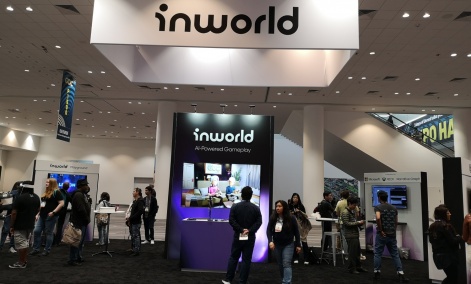
AI is also simmering and was the closest thing to the big GDC trend, without the big announcement.
Companies like King have already spent years developing AI tools for production and marketing, and were happy to discuss their learnings at the conference.
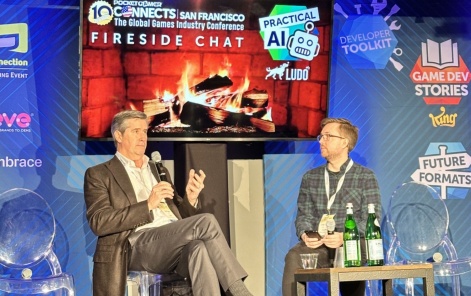
But many of the service and tools companies utilising generative AI still aren’t quite ready to completely change the industry. It’s going to be quite some time before we see serious, mass use of generative AI tools in production, as developers wait for these tools to progress and for studios to integrate them into the development process.
That said, future GDCs could end up looking vastly different from today if web3 and AI take hold as real industry trends - particularly with the latter.
4) UGC no longer flying under the radar… but it’s not flying high either
This year saw a lot of focus drawn to UGC, but it still feels like the industry at large isn’t taking seriously the opportunity of platforms like Roblox and Fortnite.
Perhaps today’s big games companies aren’t built for UGC, maybe they don’t see the opportunity, or they are taken aback by the large revenue cuts these platforms take. But despite the general popularity of the biggest games that use UGC, it still didn’t feel like the big trend of the year.
There were a few key sessions around the topic though. NetEase discussed the success of Eggy Party at the show, while Roblox and Epic of course hosted a number of sessions around their games, as did UGC developers Voldex and Gamefam.
But for platforms that engage with hundreds of millions of highly engaged players around the world, while UGC isn’t quite flying under the radar anymore, excitement around the space didn't feel sky high either. That could all change with further development to UEFN, though.
5) The industry reckons with its new challenges
During this year’s show it was impossible to escape the feeling of an industry in transition and also one that has suffered so many layoffs, a market downturn, and a mobile sector that faces significant challenges, particularly in UA.
Many of my conversations touched on two elements of this. Firstly, people in the industry were sharing their concerns about the present and future. This included concerns about the mobile market in particular, how teams and individuals are coping with layoffs, all the way to how emerging markets are feeling the impacts of a wider industry slowdown.
The GDScream in Yerba Buena was reflective of what a tough year the industry has had - people have have enough of the state of the sector and sheer number of layoffs. They felt the need to express “just how it feels to be a game developer in 2024”.
But it wasn't all gloom and doom all the time. GDC is also about meeting with old friends and making new connections. It's about sharing knowledge from successes (and failures, of course), and discussing new ideas and providing support to help others move forward.
Most of this round-up is about business, and while the past year we've seen some of the worst the sector has to offer, at its best, the games industry is a welcoming space and the people within it do their best to support each other.
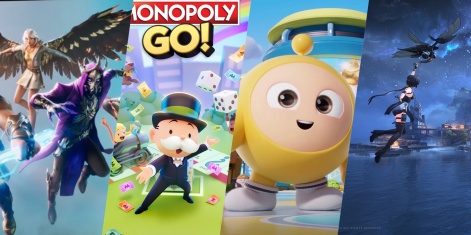
When it comes to great new games and the sharing of ideas, there were great talks on this front - such as from NetEase’s successful UGC-focused game Eggy Party, which has proven popular enough that rival Tencent is shifting its IP strategy in response.
Then there’s the $2 billion success of Scopely’s Monopoly GO - I had the chance to interview Scopely GM and SVP of product Massimo Maietti at PGC last week on stage to discuss the highs and lows of that project and how social lies at the core of its meteoric rise.
I was also fascinated to chat with Kuro Game about their new open-world RPG Wuthering Waves, and how they’ve scaled to hundreds of developers to go all-in on a project that’s now generated 11 million pre-registrations.
Then of course there are the exciting experiences being built in Roblox and UEFN right now, and the aforementioned Dune: Awakening, Star Wars: Hunters, and 1943: Rise of Hydra.
It’s been a tough time for the entire industry. But it’s great to see the developers trying to look past it and innovate as they eye better years ahead.

